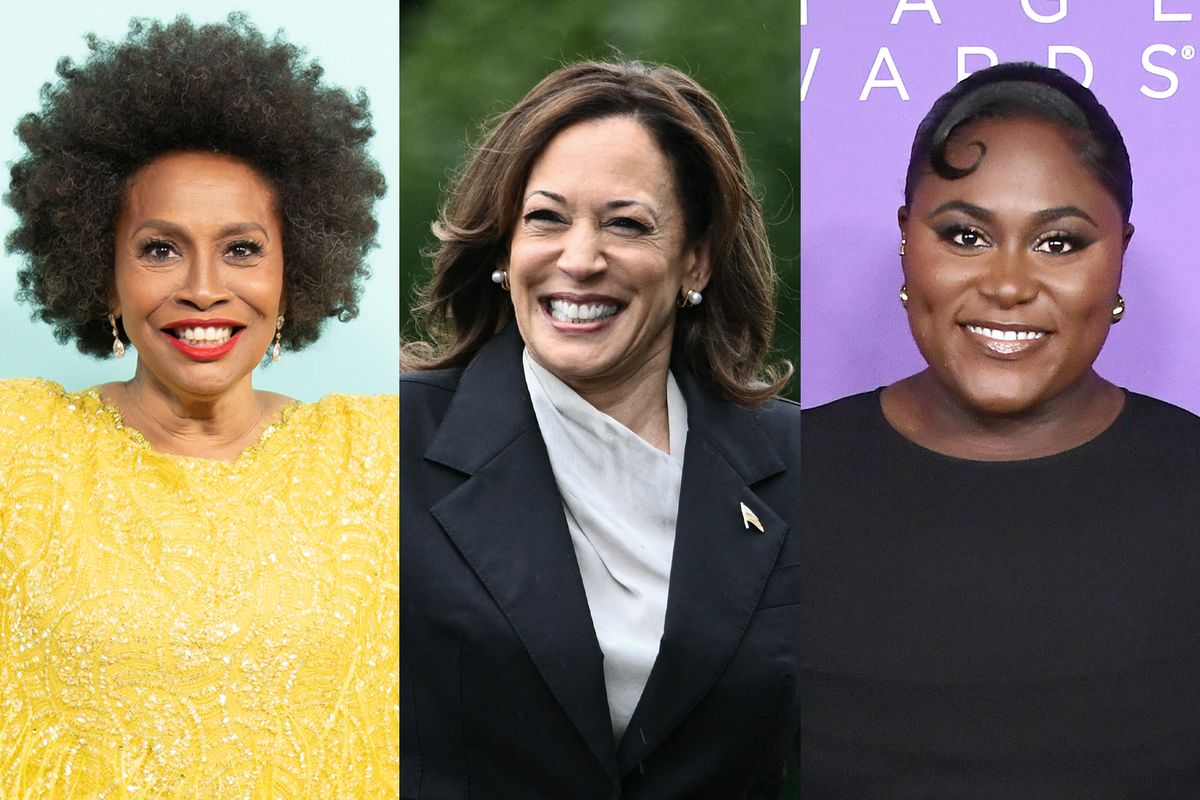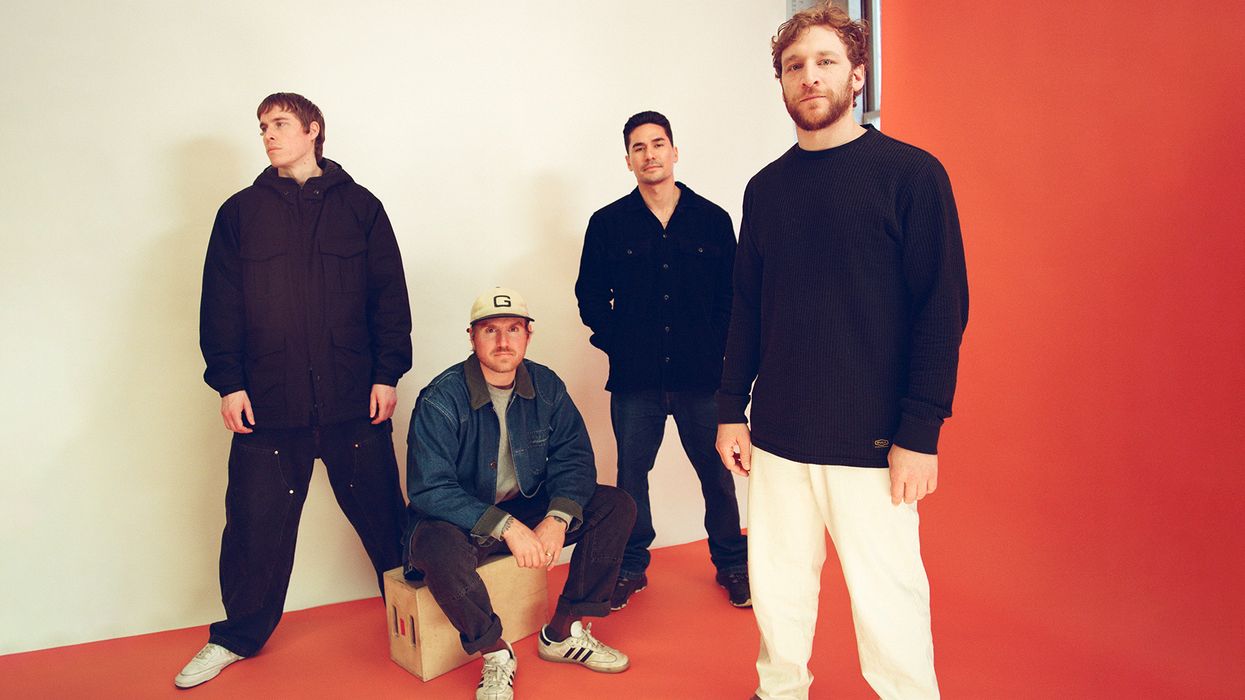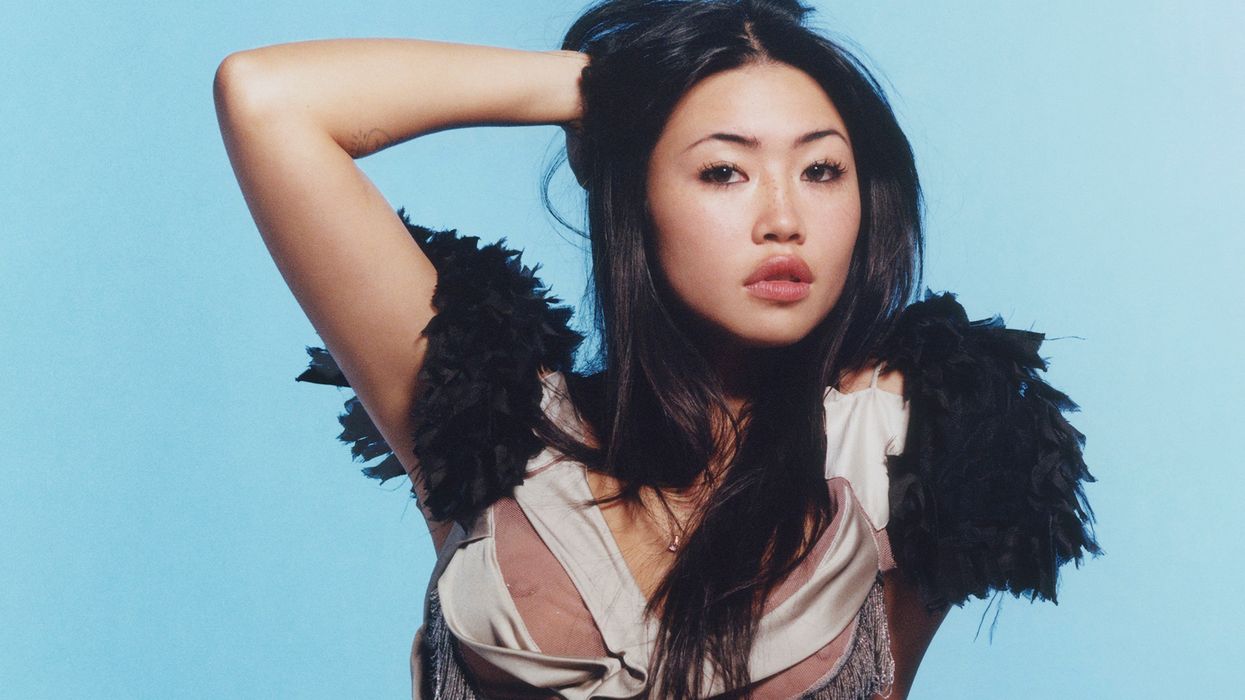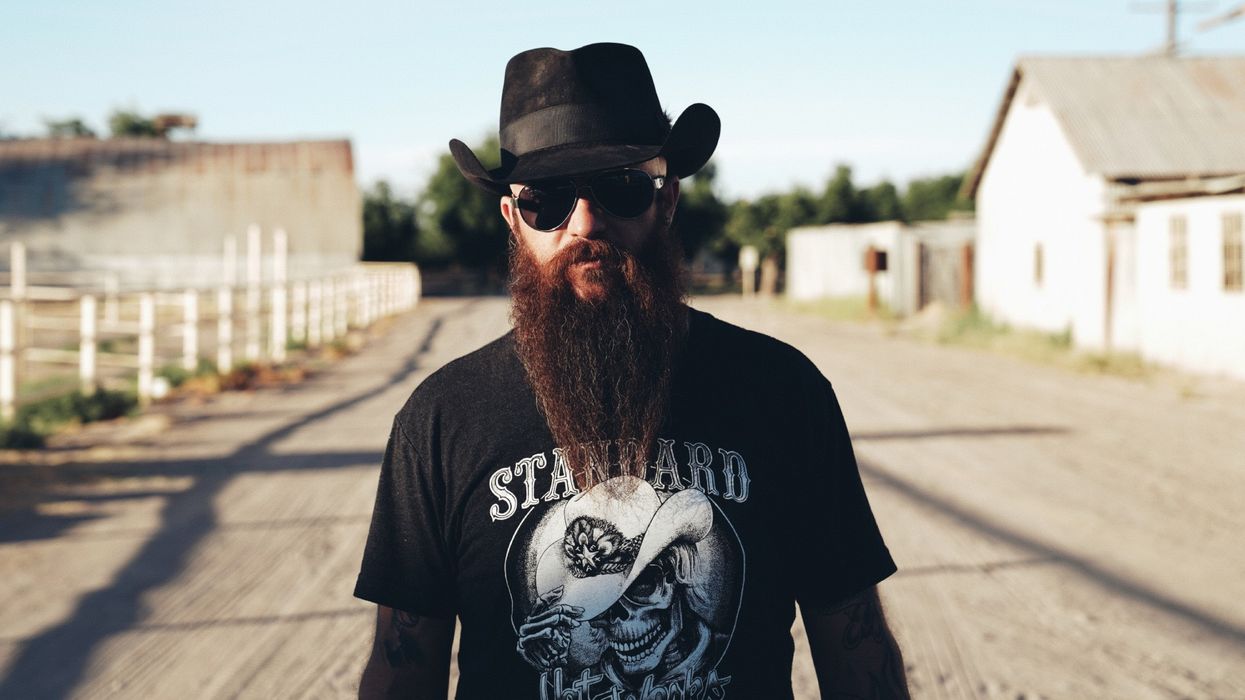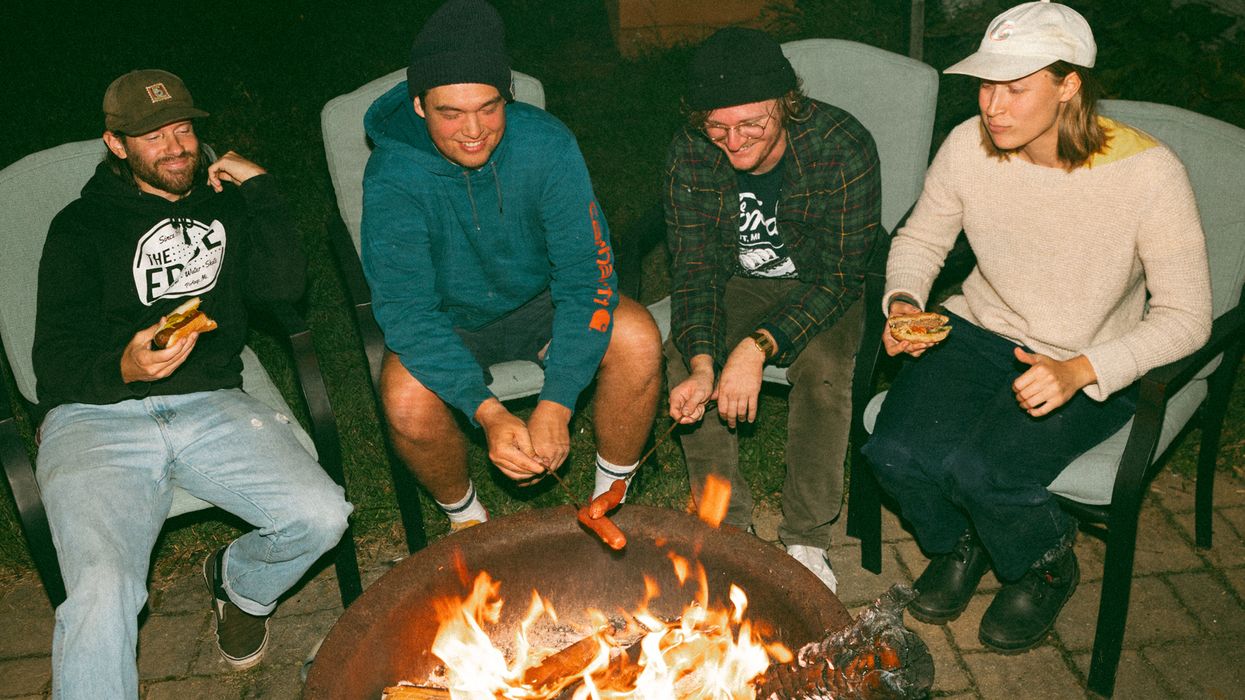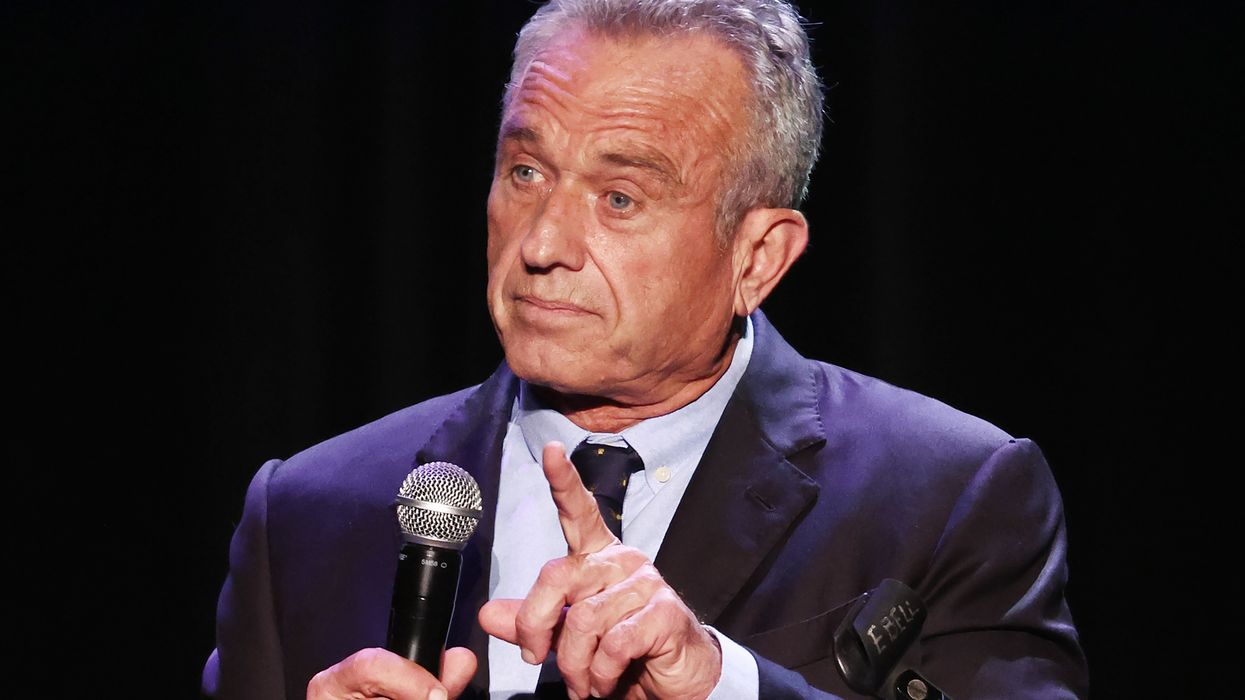As soon as Joe Biden dropped out of the 2024 presidential election and endorsed Vice President Kamala Harris on Sunday, July 21, Black-ish star and Broadway veteran Jenifer Lewis did what she does best: put her emotions into performance. Sitting at a piano, Lewis belted an original song for her 1.4 million Instagram followers in celebration of the news.
“It’s an unprecedented day,” she began. “And let me tell you what Auntie’s got to say. I got something I want to yell. My dream team is Kamala and Michelle! Ring the bell, ring the bell! Kamala and Michelle, if you don’t want this country to go to hell!”
Known as “the mother of Black Hollywood” (it’s even the title of her 2017 memoir) for the dozens of maternal roles she’s played over the decades in films like What’s Love Got to Do With It and Poetic Justice and TV shows like Girlfriends and The Fresh Prince of Bel-Air, Lewis is a longtime advocate for Democratic causes and candidates. But her support for President Biden’s campaign for a second term hadn’t been so jubilant; prior to that day, her videos had been focused more on getting out the vote than on the candidate himself. With Harris in the pole position, she seemed newly energized.
Hours later, Lewis was one of 44,000 people who joined a fundraising Zoom hosted by #WinWithBlackWomen, a collective founded in 2020 to boost representation of Black women in politics and government. The event raised a reported $1.5 million for Harris’ campaign. “It was one of the most exciting moments of my life,” Lewis, 67, says through tears. Sharing a digital space with tens of thousands of Black women from all walks of life, listening to educators, social workers, lawyers, members of Congress, and so many others speak on behalf of Harris, “was like a dream come true.”
“I am an activist before I am an actress now,” says Lewis, who has since posted additional get-out-the-vote videos featuring other celebrities to her Instagram. “I am a major voice in the cause of freedom to keep that Constitution in place, to make sure these kids have the rights so they are able to live the American dream…These are not dark times, these are awakening times, and I am going to mobilize and gather the Americans who still believe in democracy.”
It didn’t take long for stars across the entertainment industry to publicly express their excitement about Harris — a notable shift from the muted support President Biden had received from celebrities to that point. But prominent Black women in particular have put their considerable star power behind Harris. Beyoncé gave the Harris campaign permission to use her 2016 song “Freedom” in the Vice President’s first campaign ad and Megan Thee Stallion performed at Harris’ rally in Atlanta on July 30.
“As a Black woman, it is imperative that [Harris] sees that support, because we don’t often get that in a lot of our roles, whether it’s your regular nine-to-five job or running for president,” Robin Thede, creator and co-star of HBO’s A Black Lady Sketch Show, tells Rolling Stone. “Women need support and Black women in particular need support. It [would be] beyond historic for her to enter that White House. It just feels like Obama again, times ten.”
While Thede believes Democrats were going to support Biden no matter what, she says it’s hard to ignore the enthusiasm people immediately showed for Harris when the preisdent ended his candidacy. “With Kamala Harris, it feels like there are some people who may be changing their idea of who they’re voting for,” she says, “because she is exciting and she is progressive.”
Yvette Nicole Brown, best known for her role as Shirley Bennett on NBC’s Community, tells Rolling Stone she wasn’t happy with how Democrats “piled on” Biden in an attempt to push him out of the race. Replacing him on the ticket with Harris, however, was ultimately the best move.
“I’m not going to sit here and act like I’m not completely energized that this woman is having this moment, and it would not have happened had President Biden not stepped down,” Brown says. “I think that this is the right thing. We need a new, energized voice in our party. The old guard is changing. We’re getting new voices and new faces, and they’re diverse and wonderful in so many different ways. That is very exciting, because I think it is time for younger people to be making these decisions.”
As Vivica A. Fox puts it, Biden’s decision will cement him as an ally who not only played a role in helping elect the first Black president in Barack Obama, but who also made way for Harris to make history. “You passed the torch to possibly the first African American female president,” Fox says. “Dude, you’re going down as a rock star if she wins.”
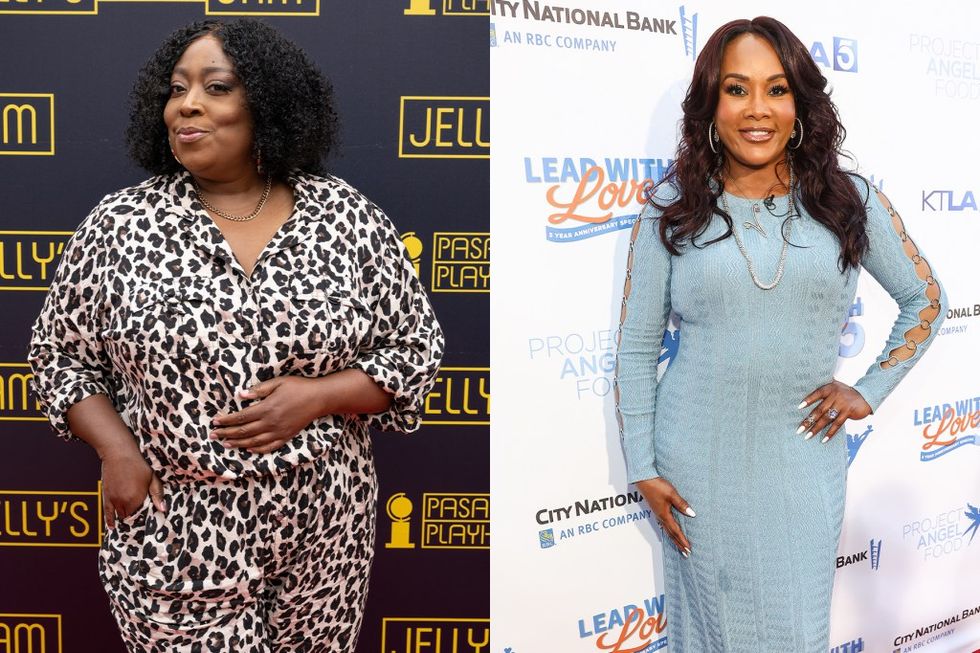
Now, for these activists and cultural leaders, it’s all about putting their money — and time, energy, presence, and influence — where their mouths are. Brown is planning to attend the Democratic National Convention in Chicago later this month with the Creative Coalition, a nonprofit made up of members of the entertainment industry that advocates for the arts; she wants to be there when Harris gets the official nomination. Fox, who’s currently filming a project, says the election is all anyone can talk about on set — and through those conversations, she’s been able to inspire some people to learn more about Harris’ candidacy.
“My makeup artist was getting me ready and my assistant said to her, ‘Are you registered to vote?’ And she goes, ‘Well, considering I really don’t know much about politics, I don’t think it’s fair for me to vote.’ We were like, ‘Honey, let us get some information for you because not voting is voting for Trump,’” Fox explains. “And that is what the other party is counting on, for people to not care. So every time I can spread the word to somebody that may not be politically active, I try to.”
“We have rich traditions, especially in the Black community, from Muhammad Ali to Sidney Poitier to Oprah and beyond, where Black people have leveraged their celebrity to make radical change, from voting rights to breaking barriers for women to now electing the first Black woman president,” says Thede.
Academy Award-nominated actress Danielle Brooks tells Rolling Stone she used to be hesitant to speak publicly about politics because she was afraid of “saying the wrong thing or not feeling like I knew enough.” But she’s taken the time to educate herself and has grown more confident in the belief that using her voice can lead to change.
“Hollywood’s power lies in people listening to what we have to say,” Brooks says. “We can’t just be silent, because that might give permission to those that value our opinions to do the same.
“No one can afford to coast this election season,” she continues. “As tedious and exhausting as it can be to follow the news, it’s crucial that everyone pays attention to the facts, watches these debates, forms their own opinions, and votes. And if people are too lazy to do the work, where are they going to get their information? The entertainers. The influencers. Hollywood.”
Courtney A. Kemp, creator of the Starz juggernaut Power, isn’t hesitant to use her platform when it comes to talking about the election and sociopolitical issues, even if her views are not always popular. “Hollywood can be vilified just as much as it can be lauded,” she says. “Not all my followers agree with me all the time, but that’s OK. Sometimes you got to take heat. If you’re not paying attention, you need to understand that some of the basic freedoms and the basic things you think about this country are all up for grabs.”
Kemp posted a message of support for Harris on her Instagram account in solidarity with the Black Showrunner Collective. The group, which came together during last year’s dual writers and actors strikes, immediately gathered their thoughts in a group chat after Harris announced she was running. Felicia Henderson, executive producer of Netflix’s First Kill, crafted the statement that was posted to social media. And according to filmmaker Reggie Rock Bythewood, an organizer of the Black Showrunner Collective, the group has plans to work with Harris campaign in the coming months.
Comedian and former co-host of The Real Loni Love, meanwhile, says she’s focused on dispelling misinformation about Harris, “because you would be surprised at how many people just don’t know what’s being said or what’s being done.”
That need proved all too vital on Aug. 1 when Donald Trump was interviewed at the National Association of Black Journalists’ national convention and questioned Harris’ racial identity. “I didn’t know she was Black until a number of years ago when she happened to turn Black and now she wants to be known as Black,” the former president said in a baseless and nonsensical attack. “So, I don’t know, is she Indian or is she Black?”
The director and screenwriter Gina Prince-Bythewood, who joins her husband Reggie Rock Bythewood and her friend Kemp in the Black Showrunner Collective, says she didn’t believe Trump should’ve been invited to the NABJ conference, but ultimately she hopes his comments persuaded those who were on the fence not to vote for Trump come November.
“I don’t know where to begin with how offensive it was for a white man to question a Black woman’s Blackness,” Prince-Bythewood, who directed Love & Basketball, The Secret Life of Bees, and The Woman King, tells Rolling Stone. “The fact that he’s calling her a DEI [diversity, equity, and inclusion] candidate is wrong but he doesn’t believe it’s wrong. He does not believe a Black woman or a Black man is more qualified than him. He will never allow that to seep into his consciousness. That’s how deep his racism goes. Hopefully, though, there are others who finally see that and see his racism and sexism.”
While Black women in Hollywood have been fiercely vocal about Harris’ campaign since its inception, other affinity groups have rallied around her too. In the last two weeks, there have been identity-based Zoom meetings and online campaigns organized by and for Black men, white women, Black queer men, South Asian women, “white dudes,” Swifties, Deadheads, and more — a trend Love says will only continue.
“It started with Black women, but this was just a spark. You’re going to see other groups come together and show their support for VP Harris,” Love says. “We understand that we can’t do it [alone], but if we weren’t supporting her first, do you think people would be interested? Someone had to start it off.”
Identity of course is far from the main reason so many Black women in Hollywood are supporting the Vice President. Fox, for one, says she’s voting for Harris to secure a better future for her godchildren — to make sure the young women have reproductive rights and access to proper health care, and the young men are protected from police brutality. But the historical implications of electing the first Black woman into the office of President of the United States are still meaningful.
Brooks agrees with Harris’ positions on the issues and thinks she’s the best candidate for the job. She also says that “seeing the impossible made possible by a Black woman” would be “the ultimate motivator.”
“I’m raising a Black girl who is four and her second president will be a Black woman,” she says. “What seeds will that plant in her garden of dreams?”
Others feel a sense of urgency too great right now to stop and imagine the emotional impact of a Black woman president.
“I know the thing I’m supposed to say is, ‘It would mean so much to me for her to be elected,’ specifically about my own existence as a Black woman,” says Kemp. “But right now I’m thinking about survival. I’m not really thinking about how majestic or wonderful that would be because this moment is much more about fighting for the soul of the country. I don’t think this is optional. I don’t think this is ceremonial. I think her election is crucial, it is mandatory, because otherwise, I just don’t know what this country will become.”
